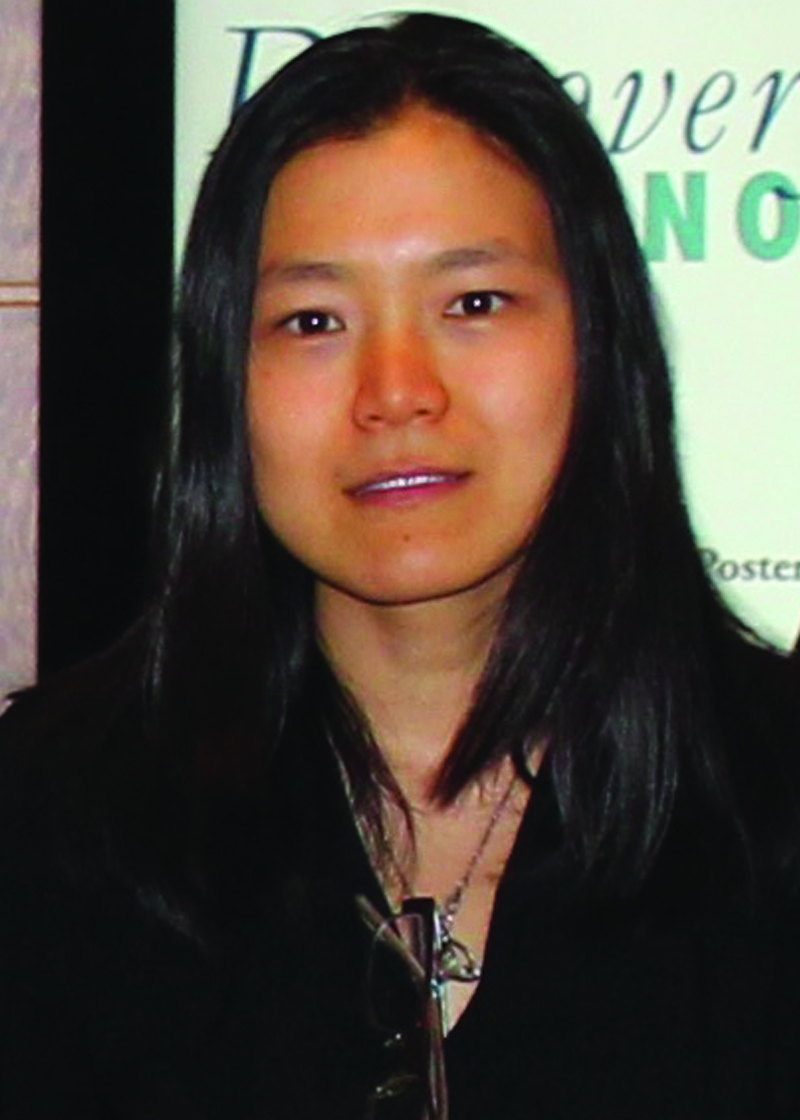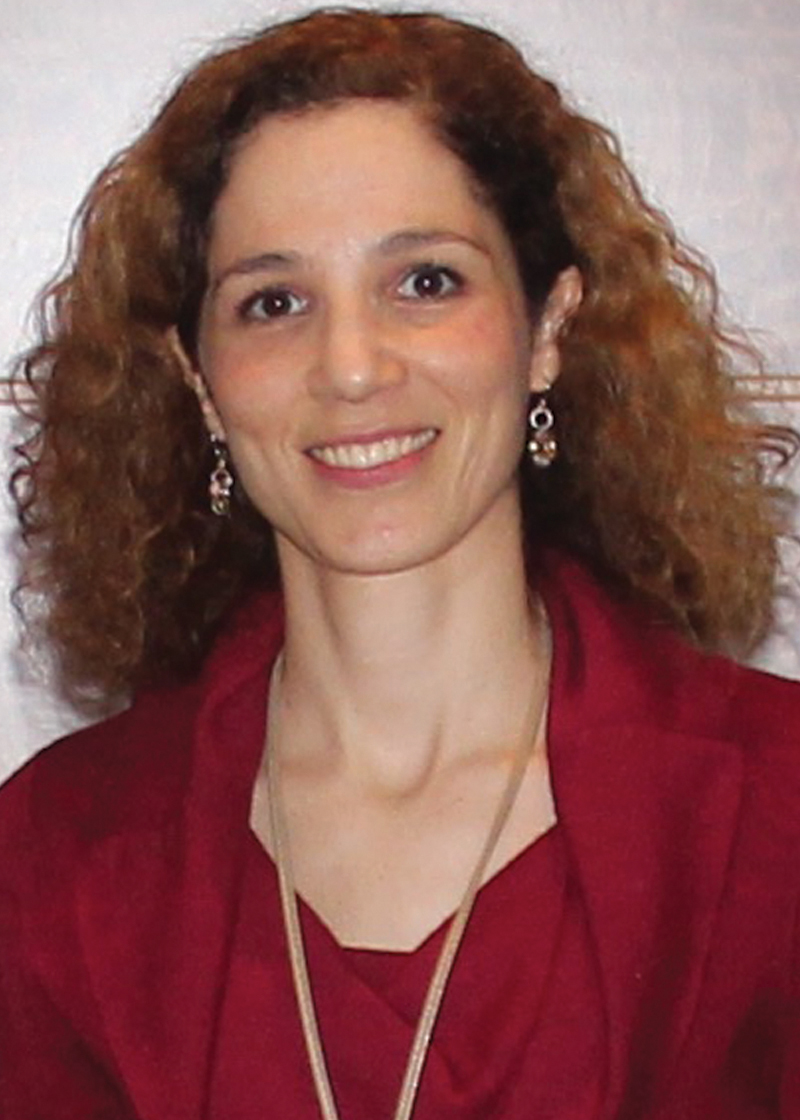HOW CAN WE HELP YOU? Call 1-800-TRY-CHOP
In This Section
CHOP Honors Distinguished Research Trainees on Poster Day
Poster Day at The Children’s Hospital of Philadelphia Research Institute is a tradition now in its 26th year. At this event, trainee-level researchers come together to present poster summaries of their work with the CHOP community. Presenters who participate in competitive judging have their posters evaluated on the basis of scientific merit, visual presentation, and oral presentation.
CHOP’s leaders and senior research mentors also take the opportunity to celebrate the achievements of a few exceptional research trainees, with the Distinguished Research Trainee Awards. Chief Scientific Officer Bryan A. Wolf, MD, PhD, presented this year’s awards to three trainee researchers whose work spans human gene sequencing, the intersection of virology and immunology, and liver disease — giving an idea of the breadth of outstanding research that trainees perform alongside their mentors at CHOP.
Graduate Student Honored for Genomics Research
 Yun Rose Li, an MD/PhD student at the Perelman School of Medicine at the University of Pennsylvania, was recognized for her outstanding research work in the Center for Applied Genomics (CAG) at CHOP. Her dissertation work in the lab of Hakon Hakonarson, MD, PhD, focused on identifying common genetic risk factors underlying pediatric autoimmune diseases (pAIDs) across a cohort of over 40,000 patients. She helped to identify both novel candidate pAID-associated genes and many overlapping disease mechanisms by also leveraging multi-omics analyses of public datasets.
Yun Rose Li, an MD/PhD student at the Perelman School of Medicine at the University of Pennsylvania, was recognized for her outstanding research work in the Center for Applied Genomics (CAG) at CHOP. Her dissertation work in the lab of Hakon Hakonarson, MD, PhD, focused on identifying common genetic risk factors underlying pediatric autoimmune diseases (pAIDs) across a cohort of over 40,000 patients. She helped to identify both novel candidate pAID-associated genes and many overlapping disease mechanisms by also leveraging multi-omics analyses of public datasets.
In addition, during her thesis, she worked on an international collaboration using next-generation DNA sequencing technologies to identify genetic markers for organ transplant rejection and worked with Affymetrix to design and implement a transplant-specific high density genome-wide array, now being used to genotype over 35,000 transplant donor/recipient samples at CAG.
Li’s work in molecular and human genetics have resulted in first author publications in Nature Medicine, Nature Communication, and Science Signaling, as well as co-authored manuscripts in multiple high-impact journals and several patents. She is currently completing her medical training and plans to pursue residency in radiation oncology. She aspires to bring targeted therapeutics to radiation by applying her expertise in human genomics to understanding how contributions from commonly inherited immune defects that are associated with both autoimmune diseases and immunodeficiency may impact cancer cell responses to radiation treatment.
“Rose is an exceptionally talented and accomplished graduate student,” said Dr. Hakonarson, director of CAG and professor of Pediatrics at CHOP and Penn. “Her passion and dedication towards her research projects and her future profession renders her unequally qualified for this distinguished research award which she so highly deserves.”
Postdoctoral Fellow Recognized for Innovative Viral Pathology Research
 Daphne Avgousti, PhD, a postdoctoral fellow in Pathology in the lab of Matthew Weitzman, PhD, who is a principal investigator at CHOP and an associate professor at Penn, was recognized for her research on viral histone-like proteins. The research she presented at Poster Day described a mechanism by which viral proteins that package DNA manipulate their equivalent proteins in infected human cells, and in the process subdue immune responses. She is first author of a related paper under review at a major journal.
Daphne Avgousti, PhD, a postdoctoral fellow in Pathology in the lab of Matthew Weitzman, PhD, who is a principal investigator at CHOP and an associate professor at Penn, was recognized for her research on viral histone-like proteins. The research she presented at Poster Day described a mechanism by which viral proteins that package DNA manipulate their equivalent proteins in infected human cells, and in the process subdue immune responses. She is first author of a related paper under review at a major journal.
Describing the subject of this poster and paper as a significant novel finding, in his nomination Dr. Weitzman praised Dr. Avgousti’s work on the project for multiple strengths, including initiating multiple new collaborations with other Penn and CHOP research labs during the initial study design and later to conduct further experiments based on questions raised during peer review of her first-author manuscript. He noted that her project helped open up a new area of research for his lab.
In addition, he praised her performance as a scientific leader, mentor, and communicator. “In addition to her own project, her collaborative spirit has led to her involvement in many other projects in the lab,” Dr. Weitzman said. “She is co-author on two other manuscripts from postdocs in the lab that are either in press or in preparation. In fact, she is likely to be a contributing author on all manuscripts that come out during her period of training in my lab. This is quite an accomplishment and reflects her interactive approach to science, her commitment to being a mentor, and her willingness to share her expertise.”
Physician Fellow Awarded for Study of Liver Disease
 Orith Waisbourd-Zinman, MD, an Advanced Hepatology and Liver Transplant fellow, was recognized for her outstanding research contributions begun during her Gastroenterology, Hepatology and Nutrition fellowship at CHOP last year. Dr. Waisbourd-Zinman is studying biliary atresia, a disease which is the leading cause for pediatric liver transplantation. Her current work models the disease using a plant toxin that she and collaborators at CHOP, Penn, the University of the Sciences in Philadelphia, and in Australia have found to cause outbreaks of biliary atresia in livestock. Through this work, she aims to better understand the mechanisms of the disease.
Orith Waisbourd-Zinman, MD, an Advanced Hepatology and Liver Transplant fellow, was recognized for her outstanding research contributions begun during her Gastroenterology, Hepatology and Nutrition fellowship at CHOP last year. Dr. Waisbourd-Zinman is studying biliary atresia, a disease which is the leading cause for pediatric liver transplantation. Her current work models the disease using a plant toxin that she and collaborators at CHOP, Penn, the University of the Sciences in Philadelphia, and in Australia have found to cause outbreaks of biliary atresia in livestock. Through this work, she aims to better understand the mechanisms of the disease.
Rebecca Wells, MD, of the Division of Gastroenterology, and an associate professor of Medicine at Penn, nominated Dr. Waisbourd-Zinman for the award, noting her aptitude for multiple aspects of research.
“Orit came to my lab two and a half years ago with minimal background in basic research, but became proficient in both the technical and intellectual aspects of her project remarkably quickly,” Dr. Wells said. “She has demonstrated great insight into her project as well as the ability to suggest links between her work and biliary atresia in patients. She’s been meticulous in putting together her data and is a fantastic writer. Finally, she rapidly assumed a leadership role in the lab, supervising other lab members, from undergraduates to visiting scientists, and both inspiring and guiding them to do exciting work. This combination of skills is rare in someone at Orit’s stage of training, and forecasts that she’ll be a highly successful independent researcher in the future. Knowing both her set of achievements so far and her potential, I think she’s an outstanding awardee.”